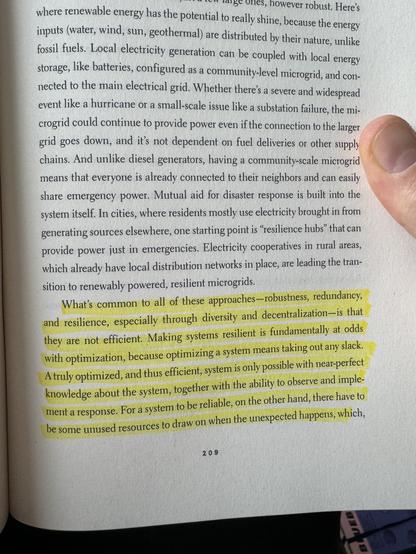Hi Everyone. Two great new positions are open at @crossref --Director of Technology and Director of Programs & Services: https://www.crossref.org/jobs/ I'm on the Board and would be happy to speak with anyone about the organization and these opportunities! #jobs #scholarlycommunications #openscience
A few of my keywords are:
#MuseTech #Strategy #Sustainability #OpenContent #Infrastructure #Ethnomusicology #Repatriation
One of my interests is how #museums use digital technologies to serve communities.
I remain active in the cultural heritage sector as a retired museum professional (I worked at #WesleyanUniversity and then #Yale). In pre-museum life, I was a musician, recording engineer, and photographer.
For more, please see my pinned intro and links.
( Testing: searchable )
Wow. This is huge news for anyone who uses Finale music notation software. 😮
And it’s on a very short timeline as such things go.
https://www.finalemusic.com/blog/end-of-finale-new-journey-dorico-letter-from-president/
“Moving Institutions toward Open—Building on 6 Years of the Open GLAM Survey”
“How common is it for cultural organisations to permit the free reuse of their digitised public domain collections? Where are these materials published online, and under what conditions?
Since 2018, [ @CultureDoug ] and Andrea Wallace’s Open GLAM Survey has been…providing valuable insights into open access activity within…galleries, libraries, archives and museums….”
You may remember that last March, I launched a survey that aimed to explore the socio-technical characteristics of the @IIIF@glammr.us and #LinkedArt communities.
For instance, It sought to situate these initiatives within a broader discourse of scholarly movements and principles (#OpenScience, #CitizenScience, #FAIR, #CARE). Additionally, it serves as a preliminary means of exploring the prospective impact of Linked Open Usable Data (LOUD) and its underlying design principles in the cultural heritage field.
I am happy to say that I have just published a 29-page report: https://hal.science/hal-04162572
I have provided some insights to the people involved in those communities in Chapter 5 (pp. 25-27).
It's indeed a snapshot but I hope it's relevant for anyone interested in community practices in the cultural heritage field. I would also like to thank all of the 79 individuals who participated! :)
“Throughout the document, we outline specific technical guidelines for various modes of modern digital lending, including how to lend digital books when an e-book license was not available at the time of digitization, how to work with publishers to allow for CDL of their undigitized backfile, and how to address digitization concerns about special and irreplaceable physical objects.”
I quit Twitter and moved to Mastodon in October 2022 when Elon Musk took over. Many other academics also came to Mastodon, and I was very happy - see my pinned posts. But most of them later became inactive.
I stick around because I've decided that corporate-owned social media are dangerous - especially now, when authoritarians are spreading their reach. Turns out it's unrealistic to expect that most academics feel this way - yet. They may get the idea when it's too late.
(1/2)
@aram Maybe a way to make it even worse could be: Rare Mad Cow Grill.
The Register: In a newly released paper, 4 university computer scientists report that OpenAI's GPT-4 large language model (LLM) can autonomously exploit vulnerabilities in real-world systems if given a CVE advisory describing the flaw. 🔗 https://www.theregister.com/2024/04/17/gpt4_can_exploit_real_vulnerabilities/
GPT-4, said Daniel Kang, assistant professor at UIUC, in an email to The Register, "can actually autonomously carry out the steps to perform certain exploits that open-source vulnerability scanners cannot find (at the time of writing)."
Just a little PSA for any T-Mo customers who see this and don’t drill back further:
You may want to raise the degree of difficulty a bit on your account by turning on this setting (quick and easy):
https://www.t-mobile.com/support/plans-features/sim-protection
Lawmakers share a draft of the American Privacy Rights Act, which would create a registry of data brokers, let consumers opt out of some data collection, more (Orion Donovan Smith/Spokesman.com)
https://www.spokesman.com/stories/2024/apr/07/cantwell-mcmorris-rodgers-strike-bipartisan-deal-o/
http://www.techmeme.com/240407/p8#a240407p8
“Today, Creative Commons is releasing new guidelines for open culture:
Nudging Users to Reference Institutions When Using Public Domain Materials.”
#OpenCulture #PublicDomain #MuseTech
https://creativecommons.org/2024/02/23/helping-users-refer-to-host-institutions/
“Italian Court Orders Getty Images to Remove Photos of Michelangelo’s David”:
“You may be wondering why Italian authorities are enforcing copyright on a 500-year-old statue that has long passed into the public domain.”
This passage from @debcha's "How Infrastructure works" is such a truth that often gets forgotten or ignored on the hunt for profit. It's a very familiar and recurring theme in resilience engineering texts and research. And it also rings true for me in this current trend of continuous layoffs that take more and more slack and capacity out of tech systems being maintained (in addition to the human cost) as remaining humans need to do more work in the same amount of time.
Geopolitics of Digital Heritage
Cambridge UP, free PDF 1/19–2/2
Natalia Grincheva and Elizabeth Stainforth analyze and discuss “political implications of the largest #digital #heritage #aggregators across different scales of #governance, from the city-state governed Singapore Memory Project, to a national aggregator like Australia's Trove, to supranational digital heritage platforms, such as #Europeana, to the global…aggregator, Google Arts & Culture.”
@sysop408 And now I see that in the original post. Whoops!
@sysop408 Ha, just thinking of email headers…. 🙂
@sysop408 It depends: was I the—or one of a few—recipients, or was I bcc’ed? 😄
“Artificial intelligence has a bias issue, discriminating against women and people of color the most. Data scientist Rumman Chowdhury is on a mission to change that.”
https://www.marieclaire.com/career-advice/meet-the-ai-whisperer-dr-rumman-chowdhury/
@natematias There we go. Crazy that it’s not opt-in, and that turning it off requires a paid account. 😱
Researchers: do you use Dropbox to store human subjects data?
If so, you probably ought revisit that decision, now they are sharing documents with OpenAI in some cases

